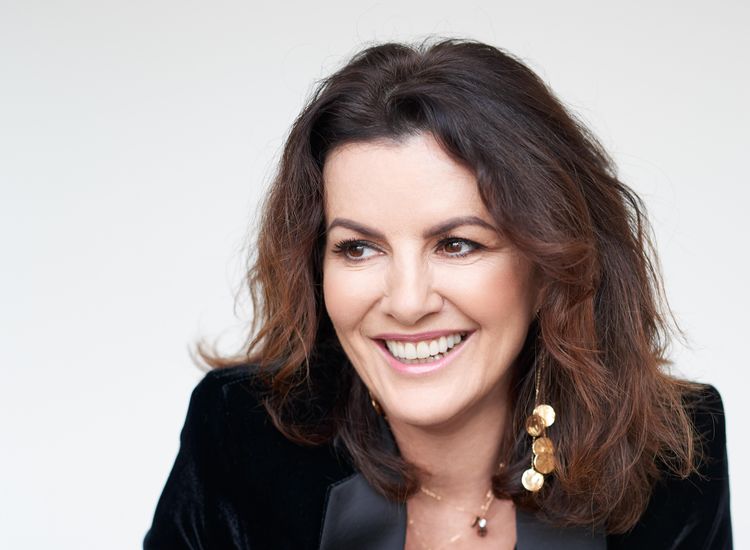Margaret Heckler pictured with Unionist politician John Taylor at the American Ireland Fund dinner in Washington, D.C. in March, 1998. Photocall archive photo.
By Irish Echo Staff
Margaret M. Heckler, U.S. Ambassador to Ireland for more than three years during the Reagan and Bush administrations, has died in Virginia.
The cause was a heart attack, according to reports. She was 87.
Heckler, an eight-term Republican congresswoman from Massachusetts who later became Secretary of the Department of Health and Human Services under President Ronald Reagan, died on Monday at a hospital in Arlington, Virginia.
Throughout much of her career, the Washington Post reported, Heckler was a groundbreaking figure who often forged her way in law and politics as one of the few women in the male-dominated fields.
In 1966, she unseated a former speaker of the House to win the Republican nomination for her district in suburban Boston.
She was the first woman elected to Congress in her own right from Massachusetts and, when she took office in 1967, was one of only 11 women in the U.S. House of Representatives.
Often described as a “Rockefeller Republican,” Heckler was viewed as a moderate on most issues.
She was born Margaret Mary O’Shaughnessy so her family lineage likely helped when President Reagan selected her for the Irish ambassadorial post.
A Native of Queens, New York, Heckler was the first woman to occupy the Dublin posting which she held from January 20, 1986 to August 20, 1989.
As head of Health and Human Services from 1983 until 1985, Heckler was among the first high-profile members of the Reagan administration to call for additional federal funding for AIDS research.
Her tenure at the Department of Health and Human Services lasted about 31 months before she was forced out by Don Regan, the White House chief of staff, who asserted that she had been a poor manager of the department.
Other conservatives in Washington complained that Heckler lacked ideological commitment to President Ronald Reagan’s programs.
In his book "Daring Diplomacy," Conor O'Clery, for a number of years the Irish Times correspondent in Washington, described how the Dublin posting became something of a "booby prize" - even during the years when peace in the North suddenly seemed possible.
"In October 1985," O'Clery wrote, "Ronald Reagan made Margaret Heckler ambassador to Ireland when he wanted to move her from Secretary of Health and Human Services after a highly publicized divorce."
As it turned out, Heckler proved a popular choice in Ireland where she became famous for her easy smile.
Meanwhile, the Heckler family released a statement describing Margaret Heckler as “an inspiration to women everywhere.”
The statement said: “Margaret Heckler passed away peacefully of cardiac arrest on Monday morning, surrounded by family at Virginia Hospital Center. She was 87 years old.
“The daughter of Irish immigrants, Margaret was born and raised in New York. She attended Dominican Academy, an all-girls Catholic High School. She went to Albertus Magnus for college and ran for the Speaker of the House of the Connecticut Student Legislature.
“She campaigned at all of the local private colleges in Connecticut. When she was heading out to go to Yale to give a speech, she needed permission from Mother Superior to come back after curfew. Mother Superior’s response was: you can go under one condition – WIN!
“Margaret was the first woman to attend Boston College Law School. Margaret rose to fame in public office: as a congresswoman from Massachusetts 10th District, as the Secretary of Health and Human Services under Ronald Reagan, and as the first woman U.S. Ambassador to Ireland.
“She was an inspiration to all who knew her.
“Margaret started her congressional career in January 1967. She was sworn into the 90th Congress and took her seat in the U.S. House of Representatives for the state of Massachusetts. She campaigned at every grocery store, textile factories and township.
“She jumped on the train in her district and campaigned at every stop along the way meeting people coming and going at the various train stations. Her efforts paid off when she soundly defeated her opponent, Joseph Martin, a longtime incumbent and former Speaker of the House. She was sworn in to the 90th Congress and took her seat in the U.S. House of Representatives.
“As a Freshman Congresswoman, she walked into a legislature with 524 men and only 11 women. It quickly became apparent to her that there was a need for a bi-partisan women’s group in the House, and so she founded and co-chaired the Congressional Women’s Caucus, which still functions in its original form today.
“She served on the Veterans Affairs Committee during her entire congressional career of 16 years, helping those who “had the most to lose” while defending our country. She made many Congressional trips overseas.
“Margaret felt that it was best to see the situation with her own eyes. Margaret flew to Cambodia with the Women’s Caucus in a humanitarian effort to ask the Cambodian President to accept aid for their starving children. The trip was a success.
“She also flew to Vietnam during the war to see the effects of the war for herself. She led the first delegation of Congresswomen to China after it reopened to the west. She also served on the Banking and Agricultural committees.
“Margaret’s best known work in Congress was when she authored the Equal Credit Act, which provided women the ability to have credit cards and own homes for the first time. (1974).
“In 1983, Ronald Reagan appointed her to his Cabinet as the Secretary of Health and Human Services. Her top priorities were to confront the AIDS crisis and she work regarding minority health.
“In 1985, she was chosen to serve as the first woman as the U.S. Ambassador to Ireland. Her mantra was work hard, study hard, pray hard.
“One of her favorite quotes was, ‘You have to look like a girl, think like a man and work like a dog!’
“I have a great sense of destiny,” she said.
“I feel like a pawn on the chessboard and I’m a great believer in the Lord’s plan for each of us. When it’s your turn to move, you move.”










